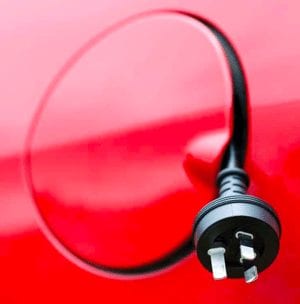Reports have emerged that China is considering putting as much as 100 billion yuan ($US16 billion) in government funding towards the development of electric-vehicle charging facilities, to spur demand for clean cars.
Citing only unnamed sources “familiar with the matter,” Bloomberg reports that the policy is expected to be announced soon, providing a “tailwind” for EV makers, who are up against consumer concern over electric vehicle price tags, reliability and convenience.
The move would build on the subsidies and tax breaks already announced by China, as part of its ramped up efforts to fight pollution and cultivate its cleantech industry.
“Charging infrastructure and EV growth is a chicken-and-egg situation,” said Ashvin Chotai, managing director of researcher Intelligence Automotive Asia. “It’s got to be a gradual process to scale up both EV sales as well as charging infrastructure. EVs are still not very attractive when compared with conventional-powered cars.”
EV sales in China have so far failed to meet government targets. As Bloomberg reports, the exemption of new-energy vehicles – electric, plug-in hybrid and fuel-cell – from a purchase tax, starting next month, is one of the recent measures China has introduced to rectify this situation, as well as an order for government departments to buy said vehicles for their official fleets.
The government is reportedly also considering allowing non-carmakers to manufacture electric vehicles to foster more competition, according to the China Automotive Technology and Research Center, which helped draft the new initiative.
BYD, the Shenzen-based electric car maker partially owned by Warren Buffett’s Berkshire Hathaway, recently cited favorable government policies for helping the company’s EV sales to jump sixfold during the first half on 2014.
Bloomberg reports that BMW, which plans to sell its electric i3 city car in China this year, has predicted that the country will become the world’s largest market for EVs within five years, as more charging infrastructure is built and the government promotes cleaner cars.








